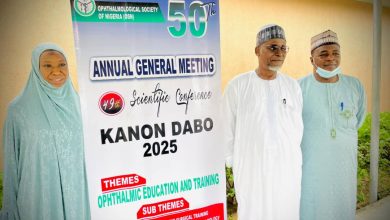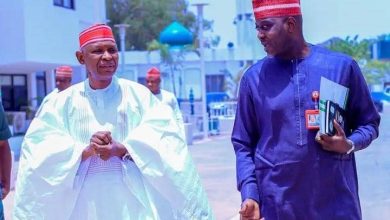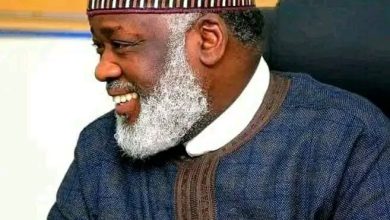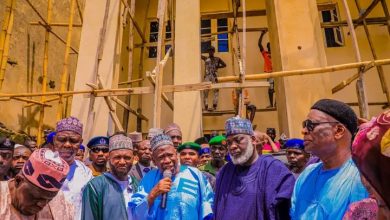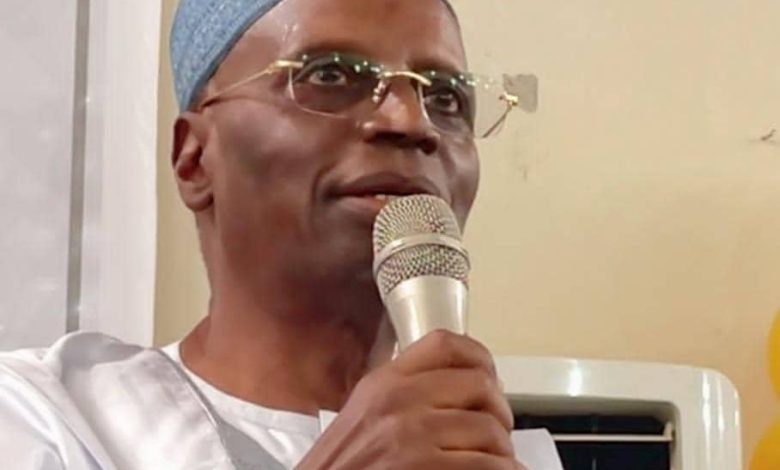
Former Minister of Finance and one of Nigeria’s most respected economic minds, Dr. Shamsuddeen Usman, on Saturday presented his latest book *Public Policy and Agent Interest: Perspectives from the Emerging World* to the people of Kano, in a powerful homecoming ceremony hosted at Bayero University Kano (BUK).
Though the book was formally launched in Abuja months earlier, Dr. Usman chose Kano—his birthplace and the foundation of his public service journey—for its first public presentation in Northern Nigeria.
The event gathered dignitaries including Academics, traditional leaders, students, and development professionals.
Read Also:
London Engagement Prevented Ganduje from Receiving Tinubu in Kano – Former Aide
“This is more than a presentation,” he said in his keynote. “It is my way of returning home—not just with memories, but with ideas that can serve our people.”
From Global Insight to Local Urgency
Dr. Usman, who began his journey in Kano’s Garangamawa quarters and rose to global influence through positions at the World Bank, the IMF, and Nigeria’s top economic posts, offered a brutally honest diagnosis of Nigeria’s stagnation: a failure of governance rooted in a betrayal of public trust.
He explained the concept of the principal-agent problem—where those entrusted to serve (agents) begin to serve themselves instead, leaving the true owners of the nation (the principals—the people) disillusioned and abandoned.
“This book is about the broken promise between government and citizens. What we call in Hausa, rashin rikon amana.”
Personal Reflections, National Realities
Drawing from his experience as Finance Minister, Dr. Usman recalled efforts to establish the Nigerian Sovereign Wealth Fund—an initiative aimed at securing the country’s oil wealth for future generations—but which faced fierce opposition from those driven by short-term political calculations.
“That fight wasn’t just about economics. It was about values—about choosing between national interest and personal interest.”
This tension between policy and politics, public duty and private gain, he argued, is the central theme of the book and a major factor in Nigeria’s persistent development failures.
The Local Cost of National Failure
Dr. Usman reminded the audience that this is not an abstract theory but a lived reality—especially in places like Kano.
He highlighted the alarming number of out-of-school children, the decay of urban infrastructure, and the collapse of trust in public institutions, especially among young people.
“When our youths see a system that rewards connections over competence, they don’t just lose faith—they lose direction.”
He described this as the greatest cost of the agency problem: not just bad roads or failed schools, but a generation that begins to believe mediocrity and corruption are the norm.
A New Development Bargain: The People Must Rise
Rather than dwell on the failures, Dr. Usman emphasized solutions.
The book, co-authored with renowned contributors including Dr. Yemi Kale and Emir Muhammadu Sanusi II, outlines a four-point development bargain aimed at restoring balance between the people and those in power:
1. Demand transparency – Citizens must insist on public access to data and government spending.
2. Challenge vested interests – Society must defend honest leaders and confront those who exploit the system.
3. Rebuild the social contract – Citizens must perform civic duties and demand quality services in return.
4. Engage actively – Everyone must act, speak, or at least reject injustice with their hearts.
He invoked a prophetic Hadith as a moral compass:
“If you see evil, change it with your hand. If not, speak out. If not, reject it in your heart—that is the weakest of faith.”
A Foundation for the Future
The event also marked the public announcement of the Shamsuddeen Usman Foundation, established by his children and focused on education, health, and information technology.
“We cannot just criticize the past—we must build the future. That is why this Foundation exists: to give our children the tools to lead.”
*More Than a Book, a Call to Action*
Dr. Usman closed by stressing that Public Policy and Agent Interest is not an academic exercise—it is a civic manual for ordinary Nigerians to understand their power, reclaim their role, and demand better governance.
“This book is for you. It is a guide to demand the accountability and dignity every Nigerian deserves. Let us work together to mend this broken promise.”
As the applause resounded through the halls of BUK, the message was unmistakable: Nigeria’s destiny will not be shaped by its agents, but by the renewed resolve of its true owners—the people.
